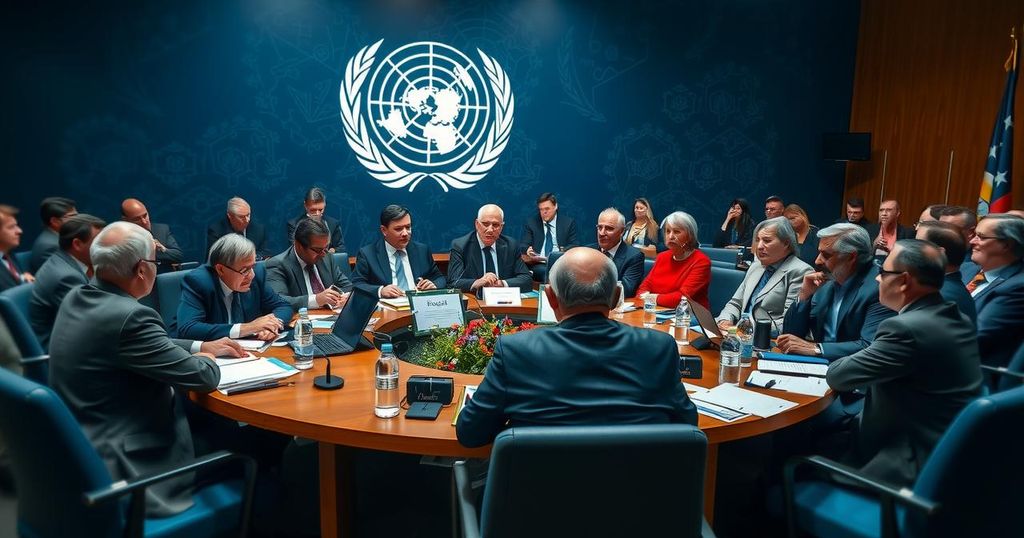During the UN climate conference, world leaders shared their countries’ experiences of severe weather impacts from climate change. Key figures highlighted the necessity for frank discussions about emissions reductions and financial support from wealthier nations, particularly for developing countries facing devastating climate-related disasters. Notable absences of major polluters raised concerns, while some nations announced ambitious reduction targets to address climate change.
As the United Nations convenes its annual climate conference, world leaders from both large and small nations gather to shed light on their experiences with the severe effects of climate change. Leaders such as Croatia’s Prime Minister, Andrej Plenkovic, emphasized the recent catastrophic flooding in Southern Europe, noting, “Over the past year, catastrophic floods in Spain, Bosnia and Herzegovina as well as well as in southern Croatia have shown the devastating impact of rising temperatures.” Greek Prime Minister, highlighting the necessity for candid discussions around global temperature control, remarked that Europe must confront the harsh realities of economic trade-offs in the transition. Amid three years of reduced rainfall culminated by multiple heatwaves, water shortages and ecological distress have become prevalent in Greece. Pakistan’s Prime Minister, Shehbaz Sharif, also addressed the conference, recounting his country’s struggles with extreme flooding linked to intensified monsoon rains. The Bahamas Prime Minister, Philip Edward Davis, pointed out the financial burdens his nation faces due to climate-induced disasters, stressing the need for financial support from more affluent nations. Concurrently, representatives from various African nations advocated for proactive green development strategies to bolster resilience against climate-related adversities. Notably absent from this year’s conference are leaders from the 13 largest carbon-dioxide-emitting nations, which collectively account for over 70% of last year’s greenhouse gas emissions. This absence includes major powers such as the United States and China, raising concerns about their commitment to the climate agenda. Nonetheless, U.K. Prime Minister Keir Starmer announced an ambitious emissions reduction target of 81% by 2035, an increase from previous commitments, reinforcing the U.K.’s allegiance to the Paris Agreement’s goals. The primary emphasis of the current climate discussions lies in climate finance, focusing on the imperative for wealthier nations to provide reparations to poorer countries severely impacted by climate-related disasters, aiding them in transitioning to sustainable energy and enhancing their adaptive capacities.
The United Nations climate talks convene annually to address the urgent global issue of climate change. These meetings provide a platform for world leaders to share the immediate impacts their countries are experiencing due to climate change, including extreme weather events like floods, heatwaves, and hurricanes. Wealth disparities between nations also become prominent, particularly the need for wealthier nations to financially support developing countries in managing the repercussions of climate disasters and transitioning toward greener economies. Recent high-profile absences from major polluting nations at this year’s conference may also signal hurdles in achieving cohesive global climate action.
The ongoing climate talks at the United Nations highlight the striking reality that nations, regardless of their size, are experiencing severe effects from climate change. Leaders are calling for urgent action, transparency in climate policies, and increased financial support from wealthier countries. With significant leaders absent and ambitious targets set by some nations, the success of this year’s discussions will largely depend on the willingness of affluent nations to fulfill their commitments and support vulnerable countries in combating climate change realities.
Original Source: www.voanews.com






